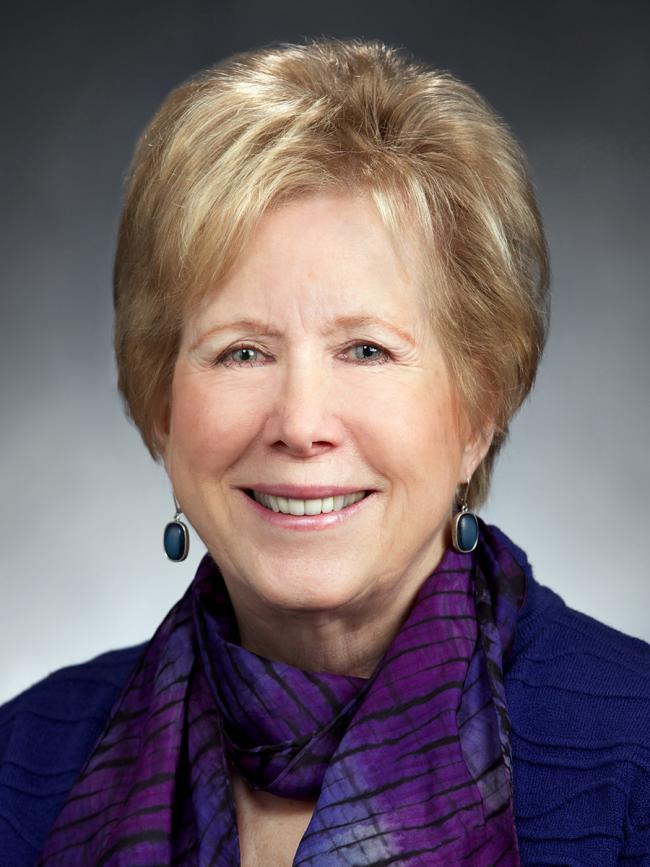Human-trafficking: A scourge locally, globally
Jeanne Kohl-Welles.
Thu, 06/26/2014
By Jeanne Kohl-Welles
The abduction of nearly 300 Nigerian schoolgirls in April happened half a world away, yet the sheer horror of it makes it seem impossible that it could have taken place on the same planet.
When the leader of Boko Haram, the group responsible for the abductions, said, “I will sell [your…There is a market for selling humans,” he invoked what is at the heart of the motivation behind human trafficking – it is about power and greed, and it knows no bounds or borders.
Because crime proliferates in the shadows, the world’s attention is rarely drawn as dramatically to the true terror of human trafficking as it was with this monstrosity. But attention to the issue, and an understanding of how trafficking occurs, is key to addressing and eliminating it. Coerced or forced prostitution or pornography, abduction, commercial mail-order bride brokering, commercial sexual abuse of minors, forced labor – these are all forms of human trafficking, and tragically occur the world over, including in our state and city.
Exact information about victims is impossible to pinpoint, but the United Nations Office on Drugs and Crime indicates millions of people worldwide are being forced into slave and exploited labor or the sex industry through threats, coercion, abduction or deception. Informed sources also say revenue from trafficking is now second only to drugs within illegal industries, and a recent study found trafficking takes place in well over half of the world’s countries, including the U.S.
Possibly the most disturbing trend is that children increasingly comprise the total numbers of those being trafficked – constituting roughly a quarter of all victims worldwide; in some countries, including West Africa, they can make up 100 percent of trafficking victims. It is estimated between 100,000 and 300,000 minors are being trafficked in the U.S. alone; the Seattle Times reported in March on the Urban Institute’s report that Seattle’s sex industry has the highest rate of growth in the nation.
With an international land border and the closest mainland U.S. ports to Asia, our state certainly struggles with this terrible scourge. But Washington has also been a leader in anti-trafficking legislation and was the first state to make human trafficking a crime back in 2003 (sponsored by former Rep. Velma Veloria, D-Seattle). This increased attention to trafficking is pulling this crime out of the shadows, so what appears to be a growth in the sex industry in Seattle is likely in part due to an increase in the reporting of this crime.
Since our legislative work began in 2002, we have enacted 36 anti-human trafficking laws and continue to lead the country. We have been recognized by key anti-trafficking organizations for our leadership on this issue. Last year, our state, along with New Jersey, received a perfect score on our anti-trafficking work by the Polaris Project. And we received the highest grade in the nation, along with Louisiana, for our anti-trafficking legislative efforts by Shared Hope International, founded by former U.S. Congresswoman and Washington State Sen. Linda Smith.
We also have passed legislation to specifically target the sexual exploitation of children. For example, I fought for legislation in 2012 that would have helped prevent kids being advertised online for sex (SB 6251). Unfortunately, the internet advertising website Backpage.com sued the state, and due to the antiquated federal Communications Decency Act (CDA), it won.
Then-Attorney General Rob McKenna disagreed with the ruling and wanted to appeal, but without updates to the CDA, the process would have been far too costly. “Congress must revisit the Communications Decency Act in order to close a loophole that allows companies such as Backpage to make millions advertising an illegal service that takes a particularly devastating toll on children,” he said at the time. I agreed to repeal our law but also included higher penalties for using online ads to facilitate commercial sexual abuse of a minor (SB 5488) in 2013. And this year I was able to push for the unanimous passage of Senate Joint Memorial 8003, which requests Congress to update the CDA to better suit contemporary challenges presented by technology.
Although Congress has yet to do this, I was encouraged when the U.S. House recently passed five bills aimed at anti-trafficking measures. One of these, H.R. 4225, has elements of my bill from 2012 and would criminalize those who knowingly advertise or profit from advertisements that offer the commercial exploitation of minors and trafficking victims. I testified in support of such bills before a House Appropriations Subcommittee held in Auburn in February, chaired by Rep. Dave Reichert (R-8th District) and with Rep. Jim McDermott (D-7th District), the Ranking Member.
When we evaluate the enormity of the issue of human trafficking, and the unfathomable suffering it causes, it seems as though we can never do enough. Even the light that is shed on trafficking as we work to eradicate it can make it seem as though the problem gets worse before it gets better. But each step we take brings us closer to identifying victims, assisting survivors and holding perpetrators accountable for the crimes they have committed.
As President Obama said, “The best way to not feel hopeless is to get up and do something.” And with so many suffering here and across the globe, doing nothing cannot be an option.
To learn more about anti-trafficking efforts in Seattle and in Washington, or to learn more about legislative efforts to address human trafficking, please contact me at:
jeanne.kohl-welles@leg.wa.gov or call (206) 281-6854.
You may also visit my office at 3131 Western Ave, Ste. 421 Seattle, WA 98121.


